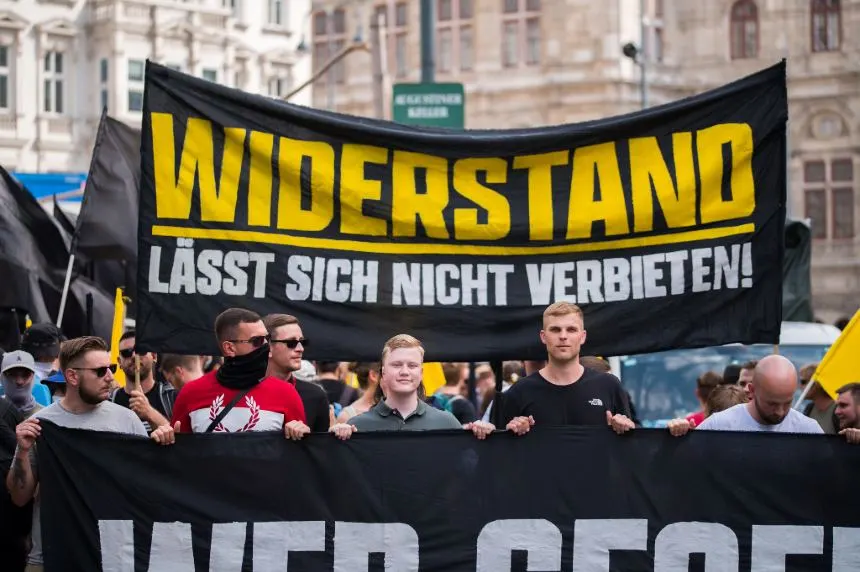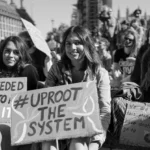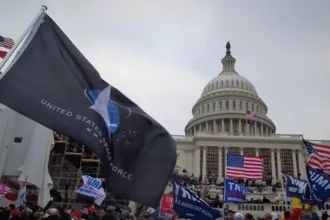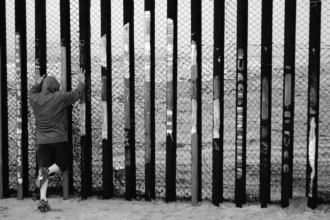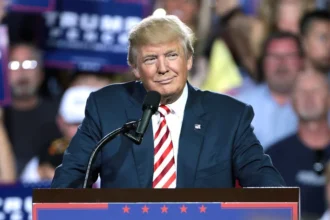The Global Right: A New International Force
The near worldwide rise of radical Right movements, parties and governments over the last decade or so has transformed international as well as domestic politics.
- The Global Right: A New International Force
- Nationalism and Transnational Movements
- Transnational Foundations of the Radical Right
- Gramsci’s Influence on the Radical Right
- Metapolitics and Global Managerialism
- Mobilizing Against the Liberal Elite
- Counter-Hegemony and the Radical Right’s Institutions
- Explore Books Written by Our Contributors
- An Illiberal Future?
- The Multipolar Vision of the Radical Right
New forces are forming on the Global Right: intellectuals and influencers gather and network at international conferences; alliances coalesce along ideological lines in the European Parliament; radical conservative governments try to influence events and reform international organizations in line with their foreign policy agendas.
World of the Right traces key elements of the intellectual and organizational strategies of the contemporary global Right, its global alliances, and its emotive force.
Yet the study of the Right remains focused primarily at the national level, with its international dimensions rarely extending beyond the disciplinary domain of Comparative Politics. It is only recently that scholars of International Relations have begun to think more seriously about how we might think about a globally interconnected radical Right. This is one of the key questions we and our co-authors explore in World of the Right.
Nationalism and Transnational Movements
It may seem counter-intuitive to see the Right as anything but national phenomena. Radical Right movements and parties are almost invariably nationalist. They are enormously varied and primarily express concerns tied directly to their origins. Consider the Trucker Protest that hamstrung Canada’s capital during the COVID-winter of 2022. In freezing temperatures, the protesters condemned the Canadian government for its alleged abuse of power during the pandemic.

Their immediate enemy was clearly domestic, spurred by restrictions on cross-border transportation. Yet it would be a mistake to see these in exclusively national terms. The language and complaints of the truckers had strong international resonances. Soon copy-cat demonstrations erupted around the world – in Brussels, Canberra, Wellington, Oslo, Paris, and countless US cities.
In each case, the protesters denounced their national leaders. But they all shared a wider perspective: a deep disdain for experts and technocratic elites in general. In the words of one Ottawa protester identified only as Daryl, a Canadian veteran who served in Bosnia, Afghanistan and Iraq:
At my lowest, I began searching for answers to why I had to go do what I did in all those different countries, and in doing so I discovered who the real enemy of this world is: the elites, the ones who are controlling what we hear, what we see, what we read, our education system, our monetary system.
Transnational Foundations of the Radical Right
While often incoherent and conspiratorial, these views and others like them provide a crucial clue to the transnational ideological foundations of the contemporary radical Right.
InWorld of the Right, we trace key elements of the intellectual and organizational strategies of the contemporary global Right, its global alliances, and its emotive force.
Liberal managerialism is thus a central part of the radical Right’s explanation of how the world works.
These movements are not simply incoherent reactions of the economically ‘left behind’ or the renewal of long-standing racist fringes.
Although these views have some purchase on what is happening, they overlook the ways that today’s global Right is much more than a series of nationalist reactions.
It has identifiably transnational underpinnings and to understand the spread and appeal of the Right requires taking these linkages and their underlying ideology seriously, rather than falling prey to the liberal temptation to dismiss them simply as paranoid and misguided, or stupid and offensive.
Gramsci’s Influence on the Radical Right
A surprising fact about today’s radical Right is that one its most important inspirations is an iconic figure of the Left: the early twentieth-century Italian Marxist, Antonio Gramsci.

In a remarkable historical twist, the radical Right turned to Gramsci for inspiration and guidance on how to launch a counter-hegemonic ideological struggle against liberal cultural domination.
Radical Right forces around the globe now routinely invoke Gramsci as their strategic inspiration.
In fact, the widespread adoption of explicitly ‘Gramscian’ ideas concerning cultural hegemony, historic blocs, and counter-hegemonic movements is one of the most striking characteristics of the radical Right today.
This strategy has been decades in the making. Its roots lie in western Europe, and in reactions against the progressive leftist ideas and the generation of ‘1968’, but it has gone on to achieve remarkable international prominence.
Radical Right forces around the globe now routinely invoke Gramsci as their strategic inspiration. The chief intellectual behind the former President Jair Bolsonaro, for example, was often referred to as the Gramsci of Brazil and calls for a ‘Right-wing Gramscianism’ can be heard across the radical conservative Right.
Metapolitics and Global Managerialism
At the center of this strategy is the idea of ‘metapolitics’ – the view that all influential political movements begin first with a process of intellectual and cultural revolution. We argue in World of the Right that a core component of the radical Right’s metapolitical strategy centers around the idea of global managerialism.
In this view, the contemporary world is dominated by the rise to power of a global liberal managerial elite, the so-called New Class of experts and bureaucrats. Detached and unmoored from their national identities and cultures, the interests of this elite lie in yet further globalization and liberalization, and against the interests of traditional national values and local communities.
Seen through the lens of this managerialist sociology, the unequal experiences of globalization and late modern politics are not the unavoidable consequences of anonymous market dynamics, economic modernization, or globalization. On the contrary, they are the result of the actions of specific, identifiable agents and institutions that produce, dominate, and benefit from the system.
Mobilizing Against the Liberal Elite
This in turn provides the radical Right with a common enemy – the global liberal elite. This elite has different faces in different geographical locations, but all are part of the liberal managerial class that is generating economic and cultural dislocation on societies across the globe.
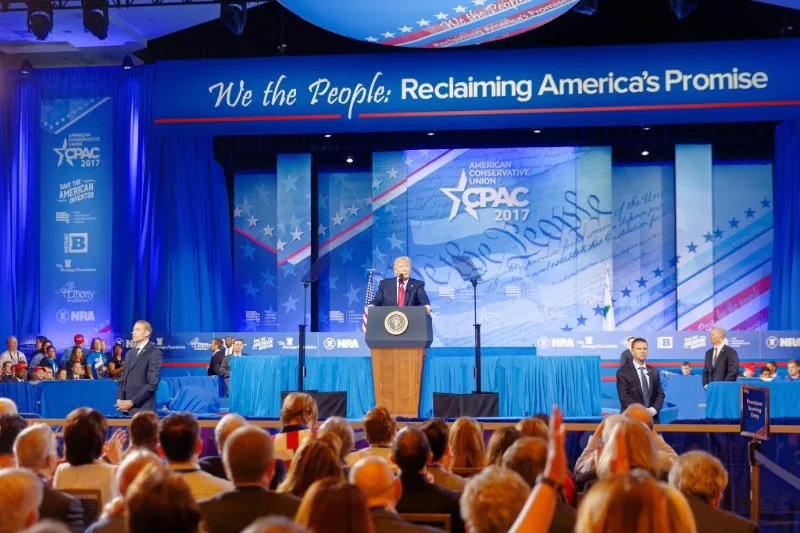
Whether this involves the destruction of national industries, attacks on traditional values such as gender roles, or religions, liberal managerialism is identified as the source and the global elites as the villains. Liberal managerialism is thus a central part of the radical Right’s explanation of how the world works: a global sociological, ideological, and political framing, as well as a political economy with capitalism and class at its centre.
There is no one coherent or uniform vision of international politics or world order among the radical Right.
Crucially, this framing also provides an identifiable enemy that can be used to mobilize diverse groups, convincing them to see themselves as part of the same global struggle – recall Daryl at the Trucker Protest. This framing facilitates powerful equivalences or shared understandings between disparate national groups.
It seeks to mobilize social forces produced and marginalized by liberalism and globalization by bringing them to self-consciousness, turning them in Marxist parlance from analytically identifiable but political inchoate classes in themselves to politically aware and active classes for themselves, providing the basis for transversal alliances than span nations and regions.
Despite its metapolitical foundations, the global Right is not a unified political and ideological movement in the traditional sense. It does not have a universal ideology or singular objective that all adherents must subscribe to. Nor does it have centralised controlling institutions. Instead, its counter-hegemonic ideologies enable a range of actors and agendas to find common cause despite their different contexts and concerns.
Radical conservative actors and ideas seek to construct transnational chains of equivalence between different movements – and at the most basic level, the global Right consists of powerful articulations and equivalences between political subjects that help generate significant political movements.
Counter-Hegemony and the Radical Right’s Institutions
Today’s radical conservatives are also well aware that ‘ideas do not float freely’. A counter-hegemonic metapolitics needs to be developed and spread by institutions – and they have been busy establishing counter-hegemonic organisations to disseminate their views and change the prevailing ‘common sense’.
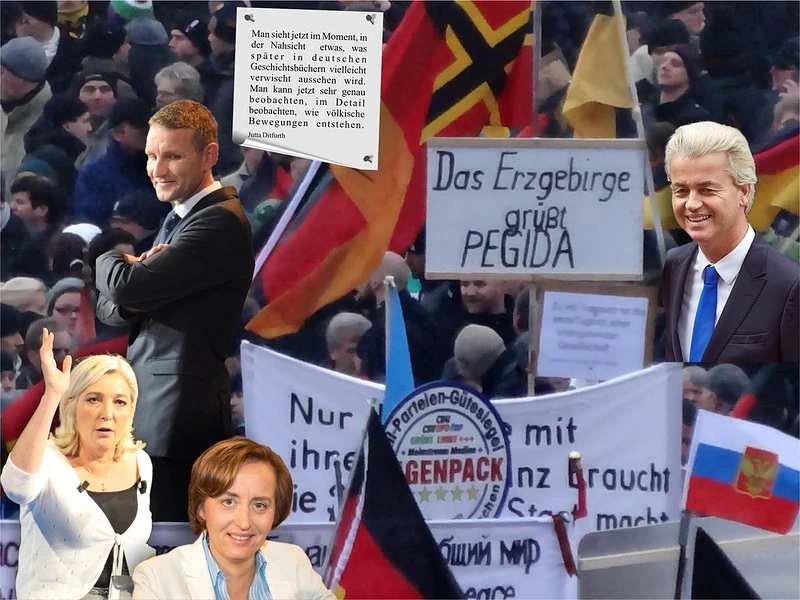
This is, in many ways, a classic Gramscian ‘war of position’, a patient, long-term struggle produce ‘organic intellectuals’ who can critique the existing order and provide alternatives to it.
The massive expansion of radical Right publishing houses in recent years, as well as their foray into universities, policy institutes and think tanks, is an outcome of this ‘war of position’. While diverse and uncoordinated, these initiatives seek to create a new legitimacy and acceptability for radical Right ideas, explicitly re-writing intellectual history from a radical conservative perspective and reclaiming it from the academic mainstream.
Explore Books Written by Our Contributors
Through new universities and think tanks, their ultimate aim is to replace the liberal, woke, managerial, globalist elite with a Right elite, schooled in the critique of managerialism and critical of the over-reach of international institutions and liberal powers. This Right elite will then be able to reshape the world in its image.
An Illiberal Future?
What exactly this world would look like is impossible to say. There is no one coherent or uniform vision of international politics or world order among the radical Right. Instead, we are confronted with different ideas and geopolitical imaginaries, some more realistic than others.
The multi-polar, civilizational world order envisioned by radical right alliances legitimizes new forms of exclusion through its claims to cultural diversity.
That said, there is no doubt that the radial Right already has already had significant impact on world politics, and that impact is set to continue and become ever more disruptive of what we have come to call the liberal word order.
The radical Right’s ability to build powerful transversal, global alliances based on a logic and discourse of difference and diversity rather than claims to Western superiority is for example being acutely felt in numerous countries as an alliance of radical Right forces overturn liberal family policies and abandon LGBTQ+ rights.
The Multipolar Vision of the Radical Right
The world of the radical Right, should such a thing ever come to fruition, would be decidedly less liberal and more sovereigntist. The radical Right’s civilizationalism and calls for multipolarity enable complex entanglements with illiberal states like China and Russia, as well as states and people in the Global South.
While the agendas of these actors frequently vary, they are unified in their opposition to Western dominance of the liberal world order and their desire for recognition within a more multipolar world. The multi-polar, civilizational world order envisioned by these alliances and the radical Right, however, is not anti-hierarchical and inclusive. It legitimizes new differences and new forms of exclusion through its claims to cultural diversity.
It can both contain and conceal forms of racism, antisemitism, and hatred, while supporting new forms of essentialism and exclusionary identities. Should this more sovereigntist vision of the world come into being, exclusionary illiberal forces would be able to operate with fewer international constraints, be it in the Global North or the Global South.


